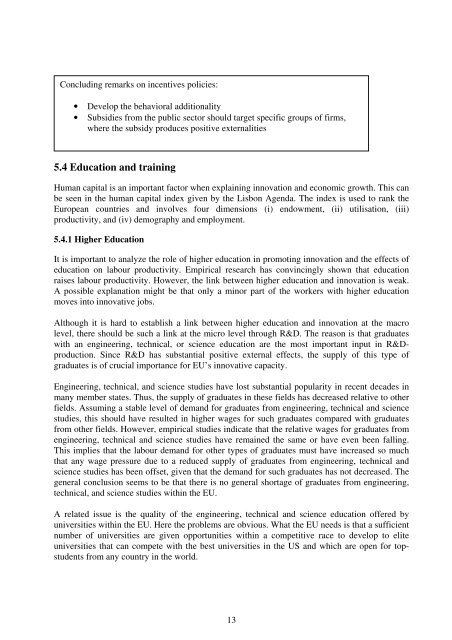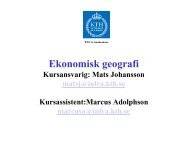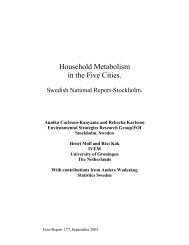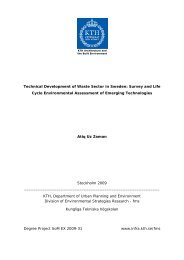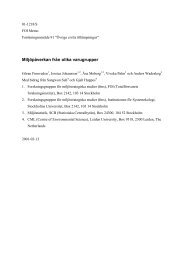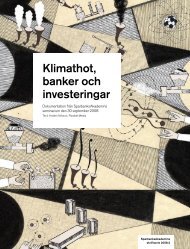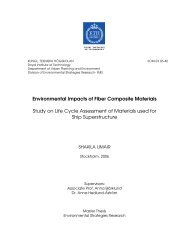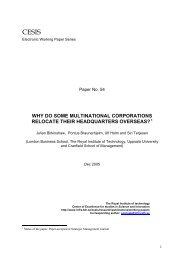INNOVATION POLICY INSTRUMENTS
INNOVATION POLICY INSTRUMENTS
INNOVATION POLICY INSTRUMENTS
Create successful ePaper yourself
Turn your PDF publications into a flip-book with our unique Google optimized e-Paper software.
Concluding remarks on incentives policies:<br />
• Develop the behavioral additionality<br />
• Subsidies from the public sector should target specific groups of firms,<br />
where the subsidy produces positive externalities<br />
5.4 Education and training<br />
Human capital is an important factor when explaining innovation and economic growth. This can<br />
be seen in the human capital index given by the Lisbon Agenda. The index is used to rank the<br />
European countries and involves four dimensions (i) endowment, (ii) utilisation, (iii)<br />
productivity, and (iv) demography and employment.<br />
5.4.1 Higher Education<br />
It is important to analyze the role of higher education in promoting innovation and the effects of<br />
education on labour productivity. Empirical research has convincingly shown that education<br />
raises labour productivity. However, the link between higher education and innovation is weak.<br />
A possible explanation might be that only a minor part of the workers with higher education<br />
moves into innovative jobs.<br />
Although it is hard to establish a link between higher education and innovation at the macro<br />
level, there should be such a link at the micro level through R&D. The reason is that graduates<br />
with an engineering, technical, or science education are the most important input in R&Dproduction.<br />
Since R&D has substantial positive external effects, the supply of this type of<br />
graduates is of crucial importance for EU’s innovative capacity.<br />
Engineering, technical, and science studies have lost substantial popularity in recent decades in<br />
many member states. Thus, the supply of graduates in these fields has decreased relative to other<br />
fields. Assuming a stable level of demand for graduates from engineering, technical and science<br />
studies, this should have resulted in higher wages for such graduates compared with graduates<br />
from other fields. However, empirical studies indicate that the relative wages for graduates from<br />
engineering, technical and science studies have remained the same or have even been falling.<br />
This implies that the labour demand for other types of graduates must have increased so much<br />
that any wage pressure due to a reduced supply of graduates from engineering, technical and<br />
science studies has been offset, given that the demand for such graduates has not decreased. The<br />
general conclusion seems to be that there is no general shortage of graduates from engineering,<br />
technical, and science studies within the EU.<br />
A related issue is the quality of the engineering, technical and science education offered by<br />
universities within the EU. Here the problems are obvious. What the EU needs is that a sufficient<br />
number of universities are given opportunities within a competitive race to develop to elite<br />
universities that can compete with the best universities in the US and which are open for topstudents<br />
from any country in the world.<br />
13


